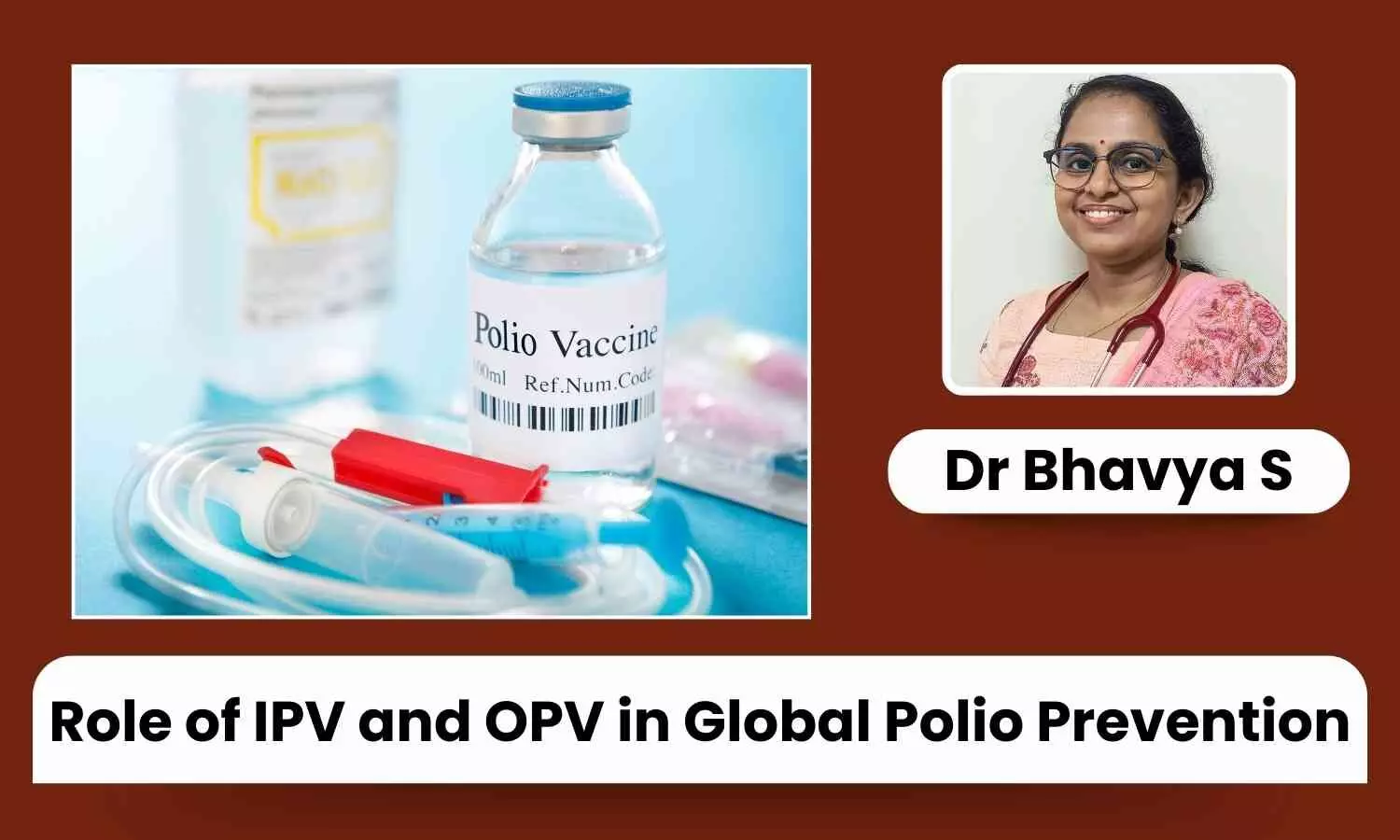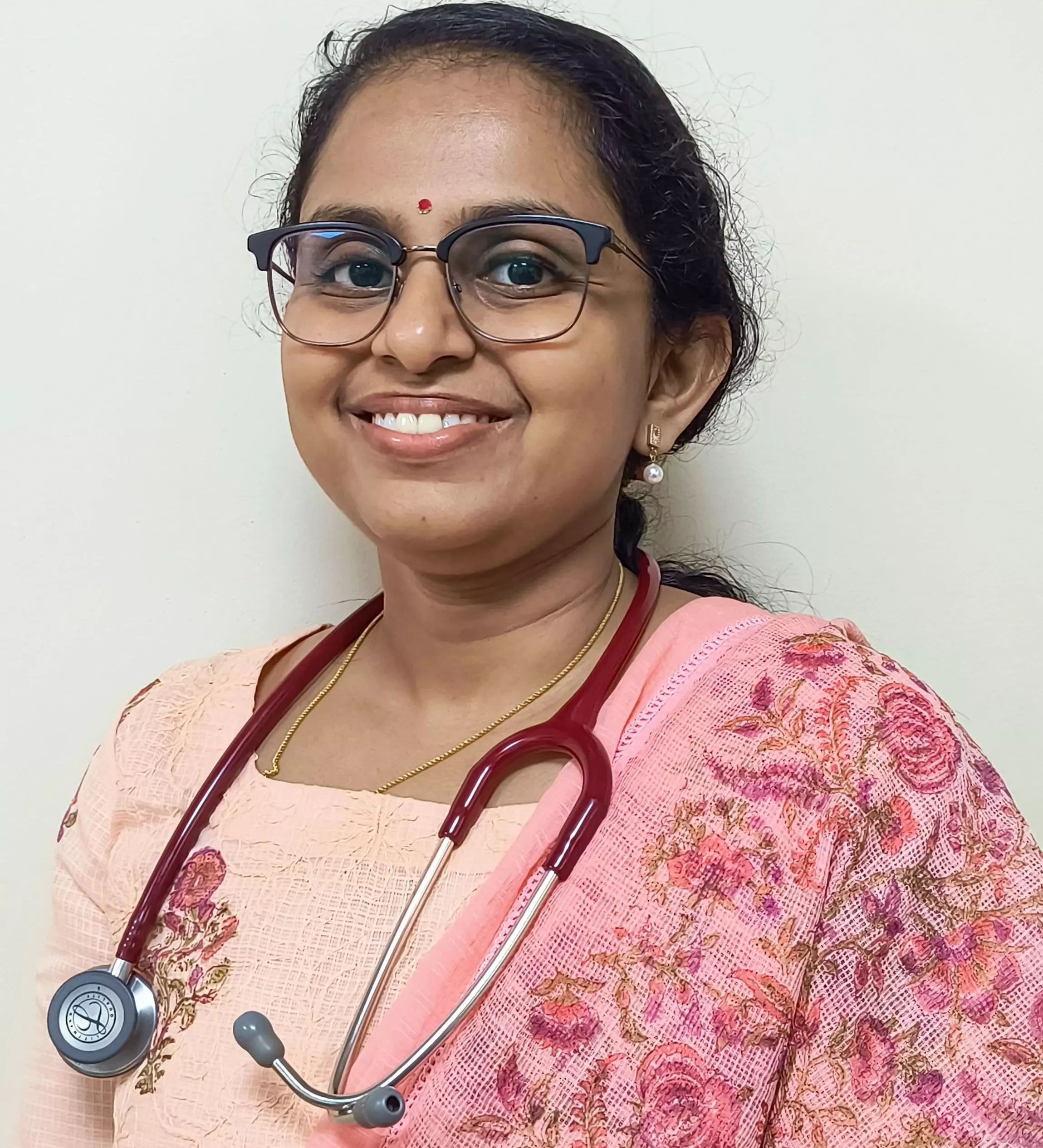Polio Vaccine: Role of IPV and OPV in Global Polio Prevention - Dr Bhavya S

Poliomyelitis, a dreaded disease of the last century that had crippled millions of people across the globe, is now on the verge of eradication.
The journey to Global polio eradication was made possible by 2 polio vaccines, IPV (Inactivated Polio Vaccine) and OPV (Oral Polio Vaccine).
Oral Polio vaccine has been the mainstay of Global Polio Eradication Initiative in most of the countries. With the advent of ‘Polio Endgame’ the focus has now shifted to IPV.
Poliovirus is an RNA virus with three serotypes, WPV (wild polio Virus) serotype 1, 2 and 3. It is a highly infectious virus and mainly affects infants and young children. The virus is spread by contact with faeces and/ or respiratory secretions.
Humans are the only natural reservoir for Poliovirus, and this fact gives the hope for Polio eradication with proper vaccination strategies. WPV serotype 2 and 3 were declared eradicated by the WHO in 2015 and 2019 respectively. WPV serotype 1 accounts for all cases attributable to WPV infection. WPV serotype 1 remains endemic in Afghanistan and Pakistan.
As per WHO, the latest Polio virus infected countries are:
1. Polio Endemic countries – Afghanistan and Pakistan
2. Countries with Polio virus circulation – Cameroon, Nigeria, Malawi, Mozambique, Madagascar, Congo, Somalia and Syria.
Since the Polio virus is circulating in many parts of the world, we should strictly adhere to the Polio vaccination regimen till we achieve a status of Global eradication of Polio Virus. Both vaccines available at present and highly effective with very good safety profile
IPV (Inactivated Polio Vaccine) or Sabin Vaccine
It is the first Polio vaccine developed in the early 1950s. This vaccine contains inactivated (killed) virus and is given as Intramuscular or intradermal injection. It offers protection against all 3 serotypes of Poliovirus.
OPV (Oral Polio Vaccine)
Oral polio vaccine was first developed in the 1960s. It contains live attenuated (weakened virus) and is given as oral drops. There are three types of OPV. Trivalent OPV (t OPV),
Bivalent OPV (b OPV) and Monovalent OPV (m OPV). Trivalent OPV contains live attenuated virus of all 3 serotypes, while bivalent contains 2 serotypes and monovalent contains 1 serotype.
OPV that we use for routine immunisation now is bOPV and offers protection against PV serotype 1 and 3. As we use b OPV at present, routine immunisation schedules which primarily use OPV also included 2 doses of IPV.
Routine vaccination schedule of Polio vaccine
India’s National Immunisation schedule recommends 6 doses of OPV (at birth, 6 weeks, 10 weeks, 14 weeks, 9 months and 18 months of age) and two doses of intradermal IPV at 6 weeks and 14 weeks.
Indian Academy of Paediatrics recommends 5 doses of Intramuscular IPV (at 6 weeks, 10 weeks, 14 weeks, 18 months and 5 years of life) and one dose OPV at birth.
Catch up Vaccination is recommended in unvaccinated/ partially vaccinated children up to 5 years of age.
The government of India has made it mandatory for all travellers to/ from countries which are endemic or with circulating Polio virus to receive one dose of IPV and OPV prior to travel, irrespective of previous vaccination status.
Some common concerns regarding Polio Vaccine:
- Can OPV be given along with Rotavirus vaccine/ Vitamin A syrup?
Yes, OPV can be safely given along with Rotavirus Vaccine or Vitamin A syrup.
- In certain brands, IPV is combined with other vaccines like DPT, Hepatitis B and Hemophilus Influenza B. Is it as effective as separate IPV?
Yes. In certain brands, IPV is combined with other vaccines. It helps to reduce the number of pricks that the child gets and is equally effective as a separate IPV.
- Is it mandatory to give OPV during pulse Polio immunisation to a child who has completed the OPV/ IPV schedule?
Yes, Pulse Polio immunisation campaign is conducted to increase the herd immunity (immunity of the community as such). So all children under the age of 5 years should receive OPV during Pulse polio campaign.


